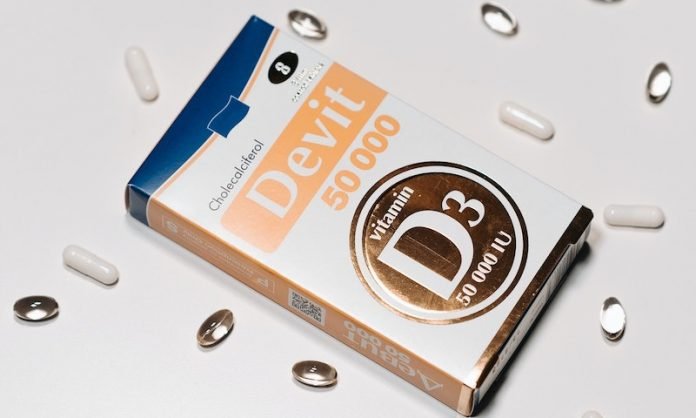
Scientists from the University of Birmingham found that healthcare workers who self-isolated after developing symptoms of COVID-19 were more likely to have a vitamin D deficiency.
The research was conducted by Professor David Thickett et al.
In the study, the team analyzed blood samples from 392 healthcare workers recruited in May 2020 towards the end of the first surge of the COVID-19 pandemic.
Samples were first tested for the presence of SARS-Cov-2 antibodies using a unique in-house assay before undergoing testing to show the concentration of vitamin D
The team showed that among the 392 workers, over half (55%) had SARS-Cov-2 antibodies, showing that they had been infected with the virus.
A total of 61 (or 15.6%) were deficient in vitamin D with much more of these staff coming from BAME backgrounds or in junior doctor roles.
Vitamin D levels were lower in younger and male staff and those who had a high BMI.
Results also showed that staff who were vitamin D deficient were more likely to report symptoms of body aches and pains, but interestingly, not respiratory symptoms including breathlessness or a continuous cough.
Vitamin levels were also lower in staff who reported symptoms of fever.
Within the cohort as a whole, there was an increase in seroconversion (or the development of detectable SARS-Cov-2 antibodies) in staff with vitamin D deficiency (72%) compared to those without a deficiency (51%).
This suggests that lower vitamin D levels could increase susceptibility to the virus.
The findings showed that there is an increased risk of COVID-19 infection in healthcare workers who are deficient in vitamin D.
The data add to the evidence from the UK and globally that individuals with severe COVID-19 are more vitamin D deficient than those with mild disease.
Finally, the results, combined with existing evidence further demonstrate the potential benefits of vitamin D supplementation in people at risk of vitamin D deficiency or who are shown to be deficient as a way to potentially alleviate the impact of COVID-19.
If you care about COVID, please read studies about people who have highest COVID-19 risk, hospitalization, and this new COVID-19 drug could effectively treat severe disease.
For more information about COVID, please see recent studies about the key to stopping indoor COVID virus spread, and results showing herb rosemary could help fight COVID-19, Alzheimer’s disease.
Copyright © 2022 Knowridge Science Report. All rights reserved.




